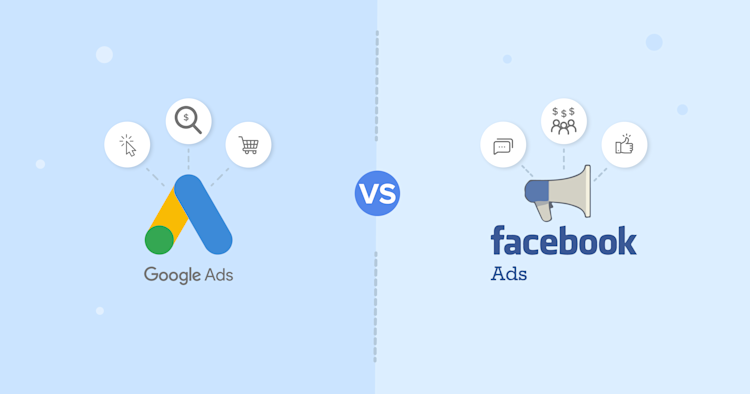In any business arena, understanding your competitor's moves is vital. This essential step allows you to strategically forecast, plan, and execute your own moves, thereby boosting your productivity and returns. One such critical factor is deciphering your competitors' Google Ads keywords. This article will delve into the world of Google Ads, helping you understand why studying your competitor's keywords is critical and how exactly you can do it.
Understanding Google Ads Keywords
Before moving forward, let's quickly brush up our knowledge on Google Ads Keywords. Google Ads Keywords are words or phrases that advertisers bid on; these are the search terms they believe their potential customers are likely to use on Google.
Now the question arises: Why does studying these search terms essential for you? Let’s explore!
Why Analyzing Competitors Google Ads Keywords Matters
Identifies Potential Keywords: By monitoring which keywords your competitors are bidding on, you can uncover new keyword opportunities that you might have overlooked and incorporate them into your own strategy.
Determines their Strategy: Understanding the keywords that your competitors are bidding on gives you a sneak peek into their marketing strategy and target audience.
Helps in Budget Optimization: By gaining insights into how much your competitors are likely spending on keywords similar to yours, you can better optimize your own Google Ads budget.
How to Identify Your Competitors Google Ads Keywords
Now that we've unveiled the importance of studying your competitors, let's unlock the methodology behind it.
1. Look at Search Engine Result Pages (SERPs)
When you enter a keyword on Google, pay attention to the ads that appear at the top of the Search Engine Result Pages (SERPs). The ads that pop up are often from your competitors who are bidding on the same keywords. Take note of the headlines, descriptions and landing pages they’re using.
2. Utilize SEMrush's Advertising Research Tool
SEMrush, a popular SEO tool, offers an Advertising Research tool that allows you to view details on any domain’s Google Ads activities. You can see their ad copies, keywords, estimated budget, and average position.
3. Use SpyFu's Keyword Research Feature
Just like SEMrush, SpyFu provides a range of keyword research features. It enables you to see every place they’ve shown up on Google: every keyword bought on Adwords, every organic rank, and every ad variation in the last 14 years.
Key Points to Remember
When analyzing your competitor's Google Ads Keywords, here are some key points you should keep in mind:
Don't Imitate, Innovate: Learning is good, but completely imitating your competitor's strategy might not be the best idea for your different offerings and customer base.
Study, but Customize: What works for one brand might not work for you. Therefore always customize strategies according to your business needs.
Constant Monitoring is Key: Keyword strategies are not stable. They change with changing trends, market dynamics, and customer preferences. Therefore, constant monitoring is vital.
Frequently Asked Questions about Competitors Google Ads Keywords
Why should I analyse my competitors' Google Ads keywords?
Analysing your competitors' Google Ads keywords provides valuable insights that can enhance your marketing strategy. It enables you to identify the keywords they prioritize and how successful they are in their campaigns. By understanding the strategies your competitors employ, you can refine your own keyword strategies and improve your ad performance.
Can I bid on the same keywords as my competitors?
Yes, you can bid on the same keywords as your competitors. If these keywords are relevant to your business and have a high search volume, it may be beneficial to incorporate them into your campaign. However, remember to monitor your campaign's performance to ensure the keywords are driving effective results.
What is the benefit of using long-tail keywords in Google Ads?
Long-tail keywords in Google Ads are more specific than short keywords and typically have less competition. This means they are often cheaper to bid on and can result in higher conversion rates as they are more targeted. By looking at the long-tail keywords your competitors are using, you can get ideas to diversify the scope of your own keyword strategy.
How to optimize Google Ads strategy using competitor's keywords?
By identifying the main keywords that your competitors are using, you can bolster your own strategy by bidding on those that are relevant to your products or services. Also, consider incorporating any long-tail keywords they employ, as these may drive more targeted traffic. Constantly monitoring and updating your keyword strategy is key to maintaining competitiveness in the market.
How to find out how much my competitors are spending on Google Ads?
Various tools like SEMRush, SpyFu, and iSpionage provide estimates on what your competitors are likely spending on Google Ads. These tools analyze various factors like bidding amounts, keyword rankings, and other data to create an estimate. However, these are only estimates, and they may not provide entirely accurate representations.
Does Google provide any tools to analyse competitors' keywords?
Yes, Google's Keyword Planner is a free tool that offers insights into the performance of specific keywords. However, it does not directly reveal which keywords your competitors are bidding on. Tools such as SEMRush and SpyFu are more geared towards competitor keyword analysis.
What is a good strategy to outperform competitors in Google Ads?
To outperform your competitors on Google Ads, focus on understanding your audience, and their search habits. Utilize a combination of broad and long-tail keywords that are relevant to your business. Monitor your campaign's performance regularly and adjust your bidding strategy as needed. Also, consider using ad extensions to improve visibility and consider the quality scores of your keywords as Google rewards high-quality scores with better ad placement and lower costs.
Can I use my competitors' brand names in my Google Ads?
Google has strict policies on this matter. Though it is permissible in some cases to use a competitor's brand name as a keyword, Google usually disallows the use of trademarked names in the ad text. Always refer to Google’s advertising policies to ensure your ad content meets all guidelines.
Pros of Using Competitors Google Ads Keywords
Enlightenment about Competitors’ Strategy
Using competitors' Google Ads keywords can provide insight into their advertising strategies. This information can help advertisers to get ideas about what works for their competitors, the kind of keywords they're focusing on, and how they're structuring their campaigns. By doing this, they can potentially spot opportunities to capitalize on a keyword that their competition may have overlooked.
Improves Keyword Research
A comprehensive keyword strategy does not only rely on generic and commonly used keywords. It involves a diverse range of keywords, including those used by competitors. Incorporating competitors’ keywords into the strategy can help unearth new ideas for profitable keywords. This might lead to the discovery of keywords that hadn't been previously considered, thus widening the scope of the campaign.
Offers a Competitive Edge
The more knowledge a company has about its competition, the better it can position itself in the market. Using competitors’ keywords can give advertisers an edge, enabling them to bid on keywords that their competitors are using to drive traffic to their websites. By doing this, they may be able to divert some of that traffic to their own site, thus giving them a certain advantage.
Helps to Identify Market Trends
Market trends often reflect in the most popular keywords. By analyzing the keywords your competitors are using, you might spot a new trend or a shift in customer behavior that you were otherwise not aware of. Jumping onto this trend before others do could be beneficial for your business.
Cost Effective Keyword Strategy
If done right, using competitors’ keywords can save some budget because the keyword ideas are generated from already successful campaigns. Instead of doing trial-and-error with possible keywords, one can leverage what’s already working for their competitors, reducing the risk of wasting budget on ineffective keywords.
Cons of Using Competitors Google Ads Keywords
May Not Suit Your Campaign Goals
Just because certain keywords are working for your competitors does not mean they will work for you. Every business has unique selling points and campaign objectives. Therefore, what works for one company may not necessarily work for another. Blindly copying competitors’ keywords without considering whether they align with your goals and offers can result in wasted budget and poor campaign performance.
Can Lead To Increased Competition
If many advertisers start bidding on the same keywords as their competitors, this can drive up the cost per click (CPC) due to increased competition. This means you might end up paying more for each click than what you’d had planned, thus potentially blowing your budget and reducing the return on investment.
Keyword Quality Can Vary
The quality of keywords used by your competitors can vary widely. Some might be very efficient and deliver high conversion rates while others might not. If you adopt low-quality keywords, this could potentially increase your bounce rates and result in a poor quality score.
Risk of Violating Google's Policies
If you plan on using competitor's brand names as keywords, be aware that it could lead to policy violation issues in Google Ads. Some countries have strict rules against using other's brand names for your advantage. Running afoul of these rules could end up in penalties and may even lead to the suspension of your Google Ads account.
Takeaway
While using competitor's Google Ads keywords could provide invaluable insights and potentially improve your campaigns, it's important to use this strategy wisely. Keywords should be closely aligned with your overall marketing strategy and goals. Learning from competitors is wise, but blind imitation without contextual understanding might lead to undesired results.
Summary
Okay, so you’ve got the rundown on competitors Google Ads keywords. It's time to wrap up what we learned! Basically, these keywords are vital for any marketing campaign because your competition is already using them to drive their success. It's a powerful tool for understanding not just how your competitors operate, but also to gain insight into their strategies and the sort of audience they’re targeting.
It's undeniable that gaining this kind of intelligence through competitors Google Ads keywords can significantly augment your own digital marketing strategies. You can use these insights to uncover gaps in your SEO and content strategies. They can help you determine the most effective keywords for your campaigns, making sure your marketing dollar is spent wisely.
Lastly, competitors Google Ads keywords aren't only about following suit with your competition in the pursuit of success. It’s about learning from the competition and capitalizing on their strategies. Simply put, it’s about studying their moves and making a better play. So don't think of it as copying, but rather as intelligent strategizing. After all, the world of digital marketing is a chess game, and we're all just trying to checkmate our competitors!
About WebPerfex
WebPerfex, based in sunny Sacramento, CA, is your one-stop-shop for all things digital marketing. We're a team of dedicated tech gurus and creative geniuses having a knack for delivering mind-blowing web designs, effective SEO strategies, and engaging social media marketing campaigns. We've got a decade-long experience in helping businesses, just like yours, grow and reach new heights. We achieve this by infusing best digital practices into our solutions and making sure the World Wide Web gets to know your brand like we do - exceptional and unforgettable. So, whether you're a blooming startup or an established company ready to shine brighter, WebPerfex has got your back. Conquer your digital space with WebPerfex of Sacramento!




